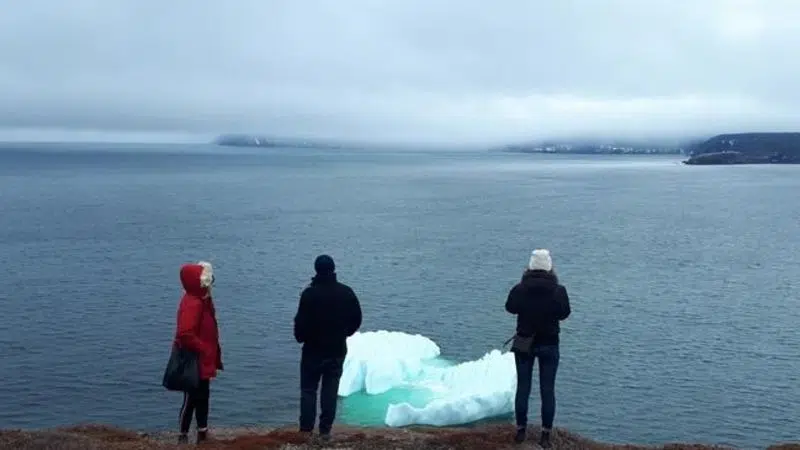
Early, photogenic iceberg raises expectations for Newfoundland’s season
ST. JOHN’S, N.L. — This historic port city welcomed an unexpected early guest on Easter weekend: a sizable iceberg, a ridge of white framed between the hills of the Narrows leading into the city’s harbour.
Visible from downtown, the photogenic ‘berg drew excited locals and tourists to trails along the city’s iconic Signal Hill on Sunday, and raised expectations for this year’s iceberg season.
The ‘berg’s early arrival is a good sign for the lucrative industry that offers tourists a look at the frozen formations, most often seen drifting down the coast of the island from May through the summer months.


